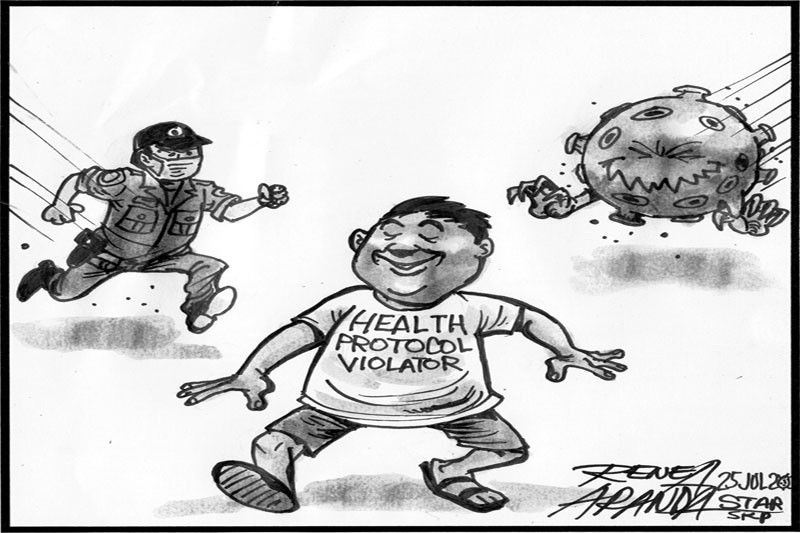EDITORIAL - Masked and protected

In some countries with the highest number of COVID infections, governments are belatedly making it mandatory for people to wear masks in public places. After initial disagreements over the benefits of wearing masks, infectious disease experts around the world are now in agreement that the practice can go a long way in curbing the coronavirus disease 2019 contagion.
A survey conducted by a London-based research group showed 84 percent compliance among Filipinos with the requirement to wear face masks – one of the highest in the world. This was from Feb. 24 to July 26, when various degrees of lockdowns were imposed in the country.
Yet the government believes compliance can still go higher. These days even talking in the light railway services in Metro Manila is prohibited, to prevent the spread of droplets. The prohibition, which initially seemed laughable, makes sense amid preliminary studies indicating that the COVID-causing SARS-coronavirus-2 may be transmitted through droplets spread by talking and even breathing.
The possibility of that kind of airborne transmission has prompted at least one private hospital to ban the use of face masks with vents, pointing out that such masks cannot protect either the wearer or those who come in contact with the person from pathogens.
As COVID cases spike, President Duterte has ordered local government units and the police to intensify the campaign against violators of public health protocols. This week police got down to work, apprehending even those cleaning the grounds in front of their homes without masks.
The order to “arrest” will have to be clarified. Will people have a permanent record for breaking ordinances? So far, first offenders are being taken to barangay centers or police stations, fined P1,000 and then released. What about recidivists? Will they be sent to jail, which are already so overcrowded they are breeding grounds for viruses?
To avoid confusion, it would be good for the local governments of Metro Manila to release uniform ordinances on such health protocols. An information campaign at the grassroots will also help, to promote voluntary compliance with the rules. Compliance can be greater if people fully understand the consequences of not abiding by the health protocols.
In the absence of a cure or vaccine for COVID, the best defense against infection is to heed the health experts’ advice and practice safety protocols. Wearing masks in public and observing physical distancing are minor inconveniences that can save lives.
- Latest
- Trending





























